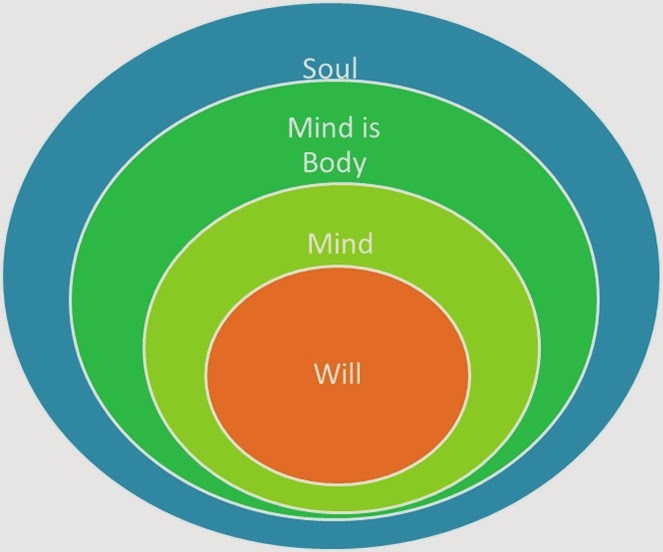#1. Soul Keeping To love well, it's absolutely essential to get clear and go forward with what matters most. But with daily distractions, it's not always easy to identify and define which is why I so appreciated John Ortberg's book, Soul Keeping.
To consistently get clear and go forward with what matters most, we need to care for the most important part of us. Our outer world / life is what people see and what we achieve but the interior life is so much more significant. That's because it's the soul that gives strength, direction and harmony. Strength to do things right. Direction to do the right things. Harmony to discern what are the right things.
John's mentor was Dallas Willard and the foundational spiritual discipline that Dallas imparted to John was, "You must ruthlessly eliminate hurry from your life." This is the single most important discipline to grow the clarity, conviction and commitment to love well.
Too often, especially in religious realms, the soul has been understood in the context of where it goes after death. But according to Dallas and John (to which I absolutely concur), "...our eternal destiny is not cosmic retirement. It is to be a part of a tremendously creative project, under unimaginably splendid leadership, on in inconceivably vast scale with ever increasing cycles of fruitfulness and enjoyment. That is the prophetic vision which eyes have not seen and ears have not heard."
Huh?
That was John's initial response too.
What is the soul?
To start, it is invisible so it's easy to neglect.
You are a soul, not just a self. Your soul makes you a person and not a thing. Your soul makes you precious, vulnerable, and yet authentically powerful. It is bigger than the will and actually the will resides in the soul.
The will is good for things that don’t involve deeply ingrained habits, patterns, and deeply rooted attitudes. The mind is a bit more substantial and effective in dealing with those things yet it is the soul that has the ability to shape both mind and will for real, lasting change and development.
The mind craves peace and does all it can to achieve it but if the soul is not well, it invariably experiences futility and unintended negative outcomes. But if the soul is well, the mind becomes preoccupied by thoughts conducive to love, joy, and peace.
So what is the soul?
It's the operating system of your life; you don’t notice it unless it starts crashing; it is made for connections and integration to synergize everything into a single, dynamic life. When our souls are well, we live whole heartedly connected to those around us. We find delight in simply being present, not having to do something for them. We are at rest from compulsions to do what we want and free from anxieties about what might happen or what others think.
However when the soul is unhealthy, disintegration occurs. We are disconnected from God and His design for wellness. This is the cause of depression and it perpetuates neglect of what matters most so we end up focusing on self - what we think is best, what we think is right, what we like. Rather than caring for ourselves, we become obsessed with ourselves.
What is the soul?
It's what takes all your senses, thoughts, feelings, beliefs, and desires and sends it to your mind, to others, and even God. When it's cared for and vibrant, you live as you were made to be - connected to God and others. This most important part of you correlates, energizes, integrates all of yourself to show up and do whatever and wherever with whoever, whenever. It even contains your secret dreams, hurts, fears, traumas, losses, and joys. It's the part of you that journeys toward peace and rest as you intentionally and tenaciously eliminate things that get in the way of achieving what matters most.
It is the inner life; our inner universe.
And to truly care for it, you need to pay attention to its needs for it is the nature of the soul to need. If you try to not need, you'll end up neglecting your soul.
Here are some of the soul's major needs: rest, a father, satisfaction, hope, a future, a center, freedom, a keeper (each person is their own soul's keeper), blessing, gratitude, to be with God / love, i.e. In love's presence, obedient to love, in alignment with love. Pursue these and your soul is on the way to being blessed!
#2. Improve Emotional Health
Emotional health is the 90% of the iceberg below the surface of what people see. It is revealed by how well or poorly we manage pain, fear, worry, sadness and anger. Low health either avoids or attacks, which inevitably perpetuates and most often exacerbates those negative emotions. High levels will empower us to experience these tough emotions yet still be able to communicate and behave in ways that maintain trust and integrity.
If we're going to get emotionally healthier, we'll need to courageously slow down to get familiar with our underlying layers of insecurity, inferiority and insignificance along with the contexts (people and events) that created those layers. Only when we get a clearer, adult perspective on difficult, personal history, will we bravely and compassionately accept pain and losses as a place to love ourselves. This is foundational to developing a more mature, truthful, and complete understanding. Of course this takes time, attention and effort.
To experience transformation of our values and priorities to create a life that actually fits us and connects deeply with others, we need to grow awareness of what we need deep down. We get stuck in emotionally unhealthy ways because of misapplied / misconceived truths about life and people. As kids, we naturally misconceive and misapply truth, but when it occurs with prolonged and profound emotional pain or neglect, the person's emotional health will be compromised.
Over years unaddressed, the solution will not be experienced by getting filled up (by weekly sermons) or retreating or adding strategies or disciplines. It is found only in revolution; intentionally walking a new pathway.
To improve our emotional health, we will need these steps:
- Know yourself that you may know God
- Going back in order to go forward
- Journey through the wall
- Enlarge your soul through grief and loss
- Discover the rhythms of the daily office and sabbath
- Grow into an emotionally mature adult
- Go the next step to develop a ‘rule of life'
To read more about each step, pick up Scazzero's book. Or click on the picture below to go to the EHS site.











